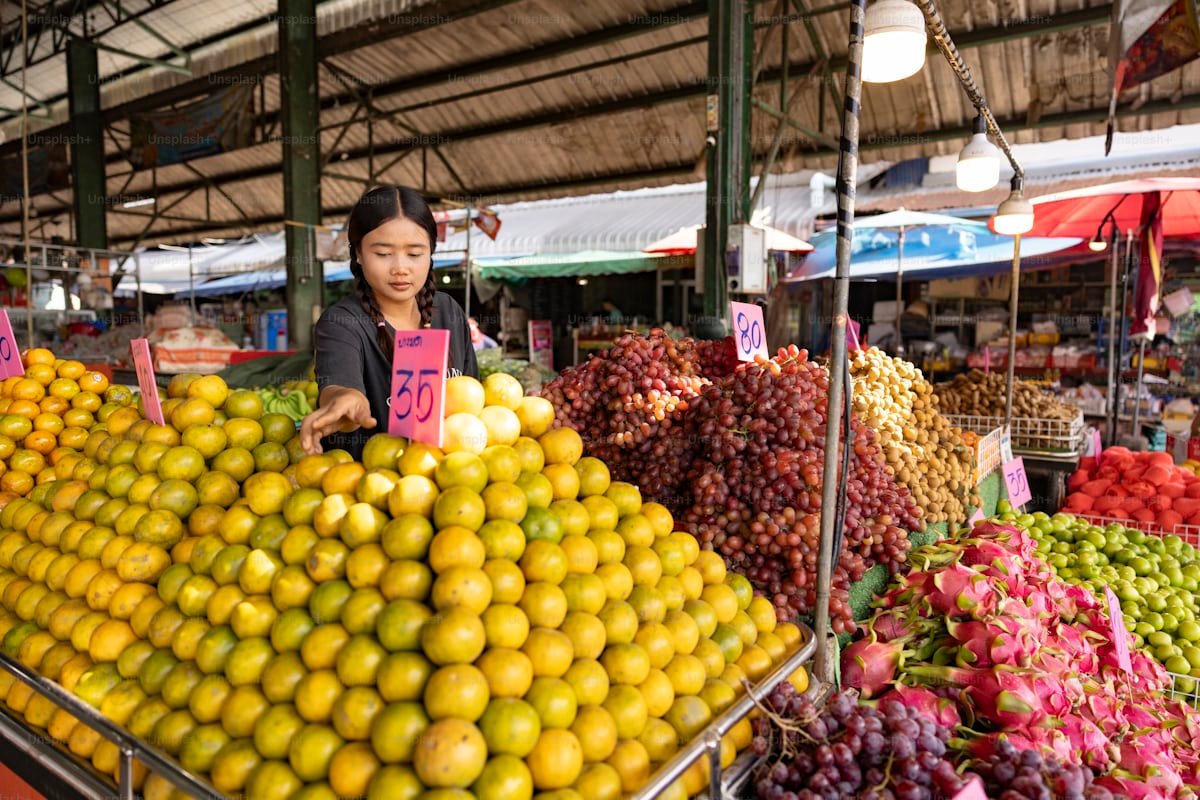Myanmar’s agricultural trade plays a vital role in connecting the country with its neighbors, especially China and India. These two nations are the largest buyers of Myanmar’s rice, beans, pulses, and other crops. Communicating across languages slows down deals and creates avoidable misunderstandings in global trading. International trade is beyond farming and exports. It requires clear communication to drive successful trade. They overcome language barriers and help Burmese people build stronger partnerships with global clients.
Myanmar Agriculture as the Engine of Trade
Unlike its neighboring countries, China and India, Myanmar is not renowned for technology, healthcare, and the IT fields. Despite the country’s limited presence in tech or healthcare, agriculture keeps Myanmar at the heart of regional import and export. The country is a huge agricultural exporter. Due to the strong reliance on international markets, Myanmar connects with buyers who speak diverse languages and come from different cultures. This reliance on overseas buyers makes precise language and professional translation vital for smooth, dispute-free exports.
How a Burmese Translation Company Supports Agriculture Trade
For Myanmar exporters, the language gap is a daily challenge. Buyers in China prefer contracts, packaging, and certifications in Mandarin. Indian buyers require documents in Hindi or English. A Burmese translation company makes this process easier.
Professional translators confirm that trade contracts match the legal standards of both countries. Export licenses, health certificates, and customs paperwork must be clear and precise. Even a small error can cause delays or financial loss. With expert support, businesses can expand their agricultural trade with confidence.
Connecting Myanmar’s Farms to Chinese Markets
China shares a long border with Myanmar. Informal border trade has existed for centuries. Today, this trade includes large volumes of rice, maize, and beans. Chinese importers demand strict food safety documents and accurate labeling.
Translation helps farmers and exporters meet these requirements. Properly translated manuals, certifications, and product details make the goods acceptable for Chinese markets. Without this, shipments risk rejection. Language support also helps farmers negotiate better prices, as both sides understand the terms clearly.
Agricultural Trade Routes with India
India is the largest trade partner of Myanmar. This trade relationship is long-standing and crucial. Indian importers require quality inspections, contract agreements, and packaging in Hindi or English.
When translation is missing, deals face serious risks. Misunderstood payment terms or incorrect product descriptions can damage trust. Accurate language solutions make negotiations smoother. This way, Myanmar’s agricultural goods enter India with fewer hurdles.
The Role of a Translation Agency in Expanding Trade
Choosing the right partner for translation makes a big difference. The best language translation agency not only translates words but also understands culture and trade practices. Agriculture deals are complex. Buyers expect honesty, clarity, and compliance.
Agencies with skilled translators provide more than literal translation. They adjust terms to fit local expectations in China and India. For example, labeling for rice in Mandarin must meet consumer standards. Similarly, product guides for pulses in India must follow local market trends. This type of translation helps Myanmar exporters stand out as reliable partners.
Packaging and Labeling for Export Markets
Agricultural exports are not only bulk shipments. Packaged goods are also growing in demand. Rice bags, canned fish, and sesame oil are examples. The design and words on these packages matter a lot.
For Chinese consumers, trust in a product depends on clear Mandarin labeling. For Indian consumers, English and Hindi matter. If instructions or ingredients are unclear, buyers may not trust the product. Translation guarantees packaging speaks the right language for each target market.
Trade Regulations and Compliance
Exporting food to China or India requires strict compliance. Each country has unique standards. China often demands proof of origin, safety checks, and quarantine documents. India requires inspection reports and health certifications.
Without proper translation, exporters risk rejection at customs. Professional translators make sure documents meet every detail of the importing country’s rules. This prevents costly delays. It also builds a reputation for Myanmar as a reliable exporter of quality crops.
Building Trust with Buyers
Agricultural trade is based on trust. Chinese and Indian buyers work with suppliers who provide clear, reliable information. Translation makes communication professional. Farmers and traders who use professional services show respect for their buyers.
This trust leads to long-term contracts. It also reduces disputes over payment, delivery, or product quality. When buyers feel secure, they place larger and repeat orders. This stability benefits small farmers and large exporters in Myanmar.
Digital Tools and Future Opportunities
Technology is changing the agricultural trade. Online platforms and agriculture are now used for selling crops. Farmers connect with buyers digitally. But these platforms only succeed when language barriers are solved.
Translation for websites, apps, and digital tools allows Myanmar farmers to promote their products globally. A farmer cooperative can use translated apps to share prices with Indian buyers. Exporters can use multilingual websites to attract Chinese partners. This digital push increases the reach of Myanmar’s agriculture sector.
Why Translation Matters for the Future of Myanmar Agriculture
Agriculture will remain the lifeline of Myanmar for decades. China and India will continue to be the main buyers. But global competition is getting stronger. Other countries also export rice, beans, and sesame to these markets.
Myanmar can stay competitive only by combining quality crops with clear communication. Translation services provide the bridge. They allow farmers, exporters, and buyers to connect without confusion. With accurate translation, Myanmar’s agricultural trade can expand and bring growth to millions of families.
Conclusion
Translation is more than a language service. For Myanmar’s agriculture sector, it is a gateway to trade success. With China and India as top buyers, professional translation makes sure that documents, packaging, and contracts are accurate.
A Burmese translation company helps exporters navigate the daily challenges of cross-border trade. It also adds cultural insight, ensuring Myanmar products meet market standards abroad.

